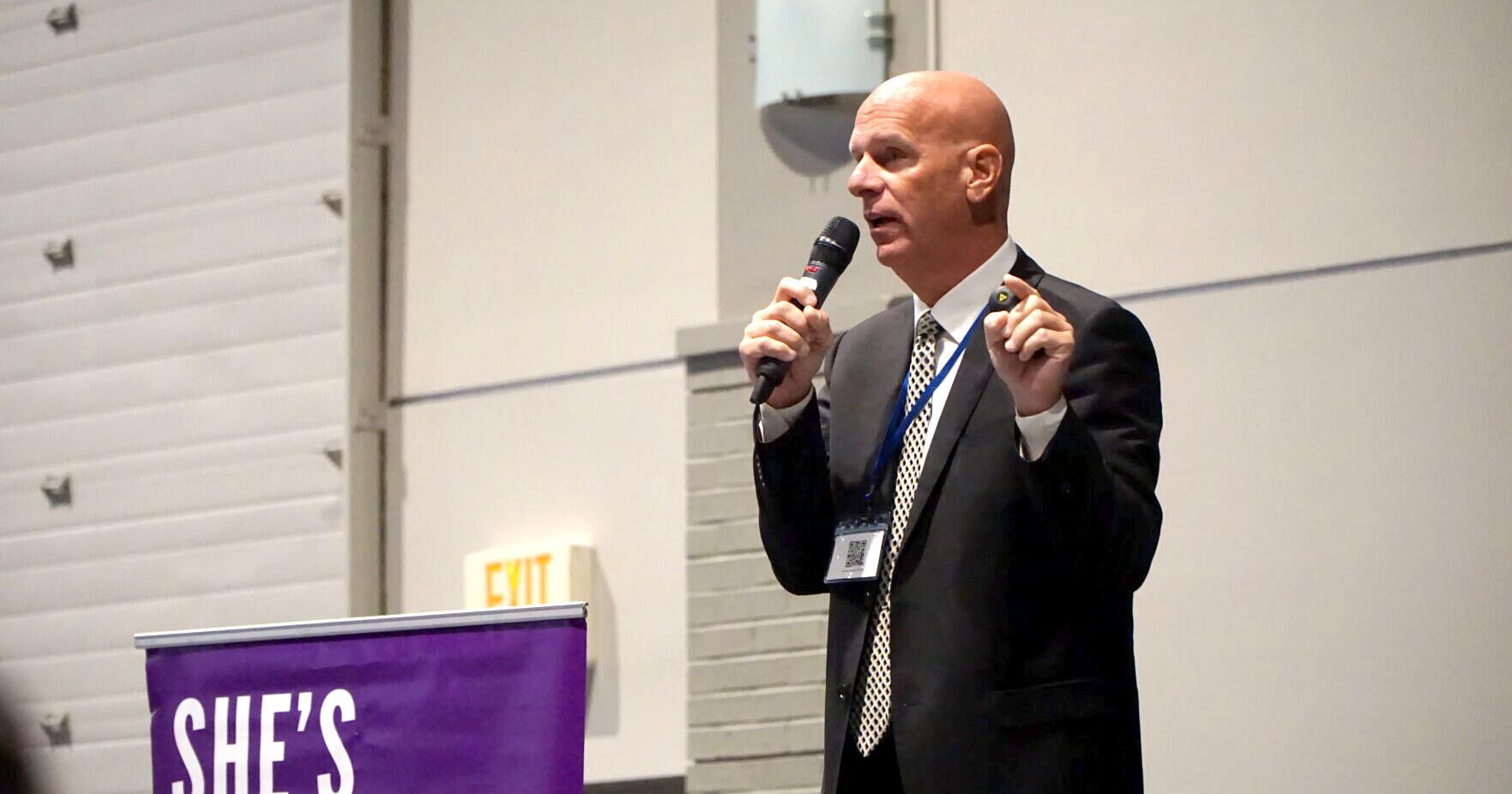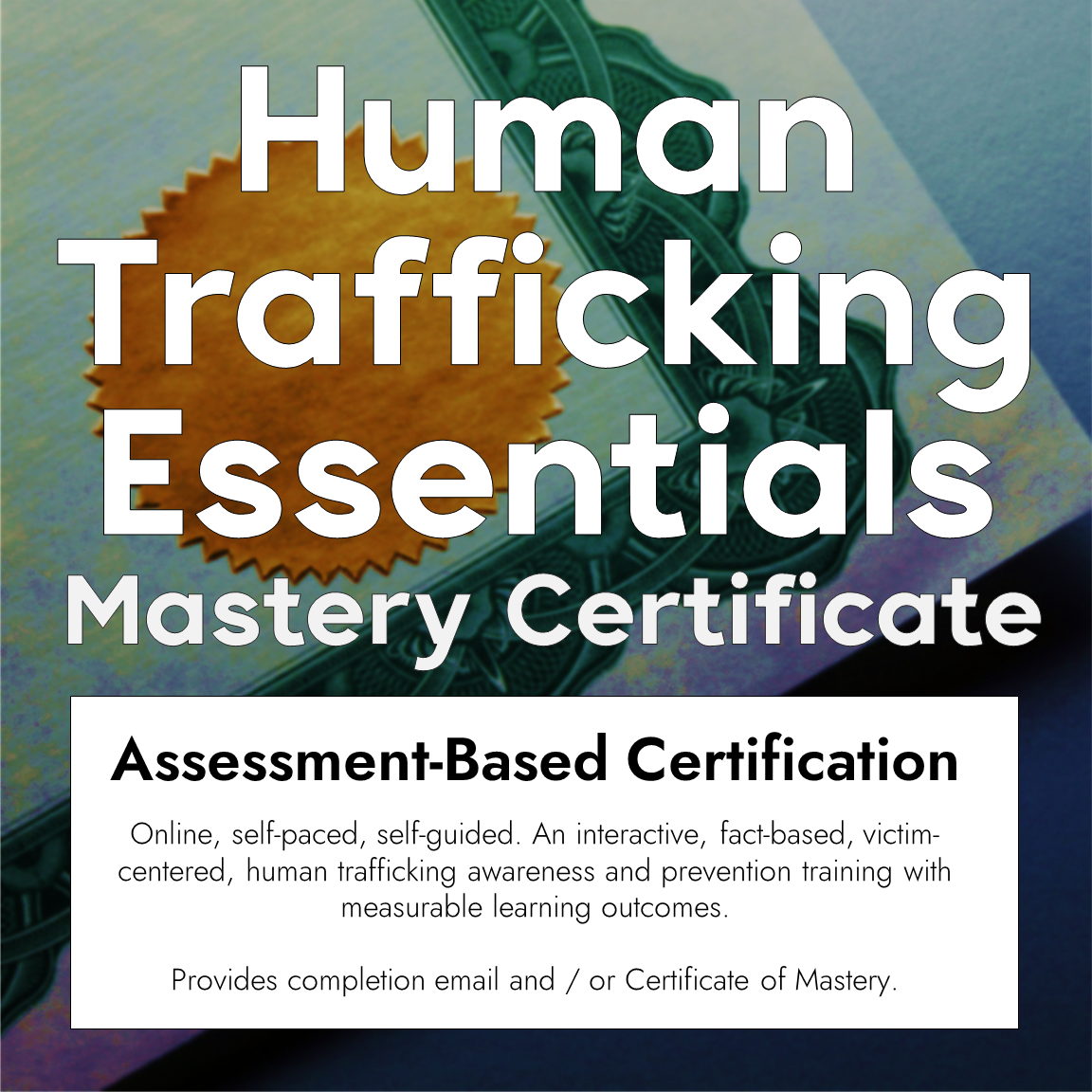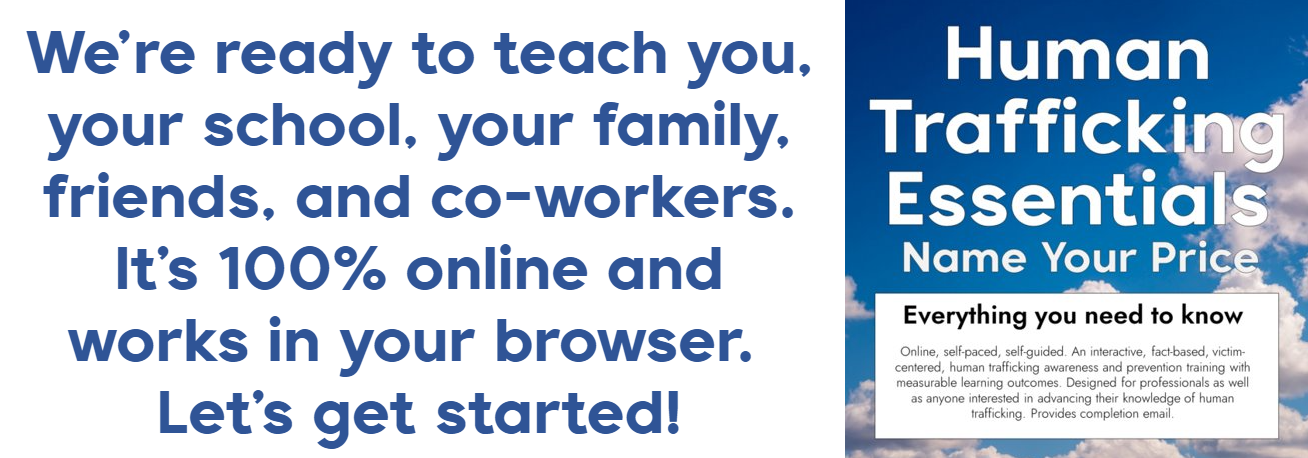‘Paradigm shift’: Law enforcement shifts approach to human trafficking victims

Law enforcement agencies are rethinking the way officers treat victims of human trafficking, and more changes are needed, a retired Missouri state trooper said Thursday in Longview.
Daniel Nash, co-founder of the Human Trafficking Training Center, was one of several speakers at the “Too Close to Home: Uniting Against Human Trafficking” seminar at Maude Cobb Convention and Activity Center.
The event was hosted by the Women's Center of East Texas to educate people about the impact of sex trafficking in the region and how to spot it.
Sex trafficking — where people of all ages, especially youth, are manipulated and forced to perform sex commercially — is one of the largest criminal enterprises in the world. It's a $150 billion-per-year industry with an estimated 50 million victims across the world and country, Nash said.
Trafficking is something law enforcement officers still aren't fully educated on, Nash said. But he's working to train thousands to help victims escape sex slavery and start new lives.
Changing perspective
As a Missouri Highway Patrol trooper, Nash spent years investigating narcotics and vice crimes beginning in the 1990s. Law enforcement officers cracked down on prostitutes, assuming they were “less than desirables” engaging in illegal sexual activity because they wanted to.
“We didn't understand human trafficking,” Nash said. “We didn't even call it human trafficking 20 years ago.”
One call changed everything. Seventeen years ago, Nash was dispatched to investigate a report of prostitution. He found a man in his 40s with a girl in her 20s walking across a parking lot. He separated the two and tried to question the girl, but she was belligerent and wouldn't speak.
Nash left. Two months later, the girl was found dead in a bathtub. She had committed suicide. A photo of her infant son was found on the edge of the tub, Nash said.
“When we contacted her mother to do a death notification, the mother said, ‘I'm not surprised,' ” Nash said. “She said, ‘My daughter was molested from the time she was 7 until she was 10, but she never told anybody, and we didn't know.'”
The trauma haunted the girl for the rest of her life and caused her to perform poorly in school, sever relationships and abuse drugs. She got to know a man she thought would take care of her. He turned out to be a human trafficker.
If Nash had known the girl was a victim, he could've intervened, he said.
“I realized right then, 17 years ago, ‘We have to do something completely different because what we're doing right now's not working,'” Nash said.
Victim-centered approach
For decades, law enforcement officers have interrogated prostitution suspects and potential trafficking victims using impersonal, standardized lists of questions.
Victims haven't responded well. Traffickers have threatened victims not to speak up, and some victims believe law enforcement officers don't care about them, Nash said.
Most victims never admit that they're victims — and some may not understand that they are being trafficked, Nash said. Most trafficking victims have post-traumatic stress disorder, too, which can be triggered by intense questioning.
Others, Nash said, are too afraid or ashamed to disclose what they're going through.
Nash is among those advocating a victim-centered approach to trafficking investigations, where law enforcement officers build relationships with victims that allow them to freely talk about the abuse they've endured.
When law enforcement officers encounter potential victims of trafficking, one of the first questions they're encouraged to ask a victim is: “Are you OK?”
Officers inquire about whether the victim's immediate needs are met. They ask if the victim needs something to eat or has children or animals who need to be cared for, among other questions.
Officers contact organizations that help victims escape trafficking and transport them to a safe location, such as a shelter for victims of abuse and violence, if the victim is willing.
Officers also assure the victim that they're seeking to prosecute the trafficker, not the victim. The victim is allowed to rest for a while, even days, to process what has happened before being questioned. Officers are encouraged to let the victim discuss abuse when he or she is ready.
“These victims of trafficking are on their own timeframe,” Nash said.
Some victims don't respond to any kind of law enforcement intervention. But sometimes, the victim-centered approach works.
Six years ago, Nash was dispatched to a hotel to investigate a report of prostitution. Nash spoke with two women in a hotel room with a man.
One woman refused to cooperate with police, but another was willing to leave the scene with Nash and be taken to a shelter for abused people. When Nash offered to take her there, the woman teared up.
“She says, ‘If I don't get out, I'm going to die,' ” Nash said. “I said, ‘I know.' “
On the way to the shelter, they talked about the “Avengers” movie series. When Nash went to talk to the victim the next day, he brought her a milkshake because she said she liked them.
He made a few visits before the woman shared her story. She was molested as a child, began using drugs and was homeless for a time before she was deceived into being trafficked.
“She tells me everything,” Nash said. “Why'd she do that? Because I think I was the first person that never wanted something from her. … I just wanted to help her.”
‘Paradigm shift'
Today, the victim lives in an apartment, has a job as a hair-dresser and has a boyfriend. She testified against her trafficker, who was sentenced to 22 years in prison. And she keeps in contact with Nash, even referring other victims of trafficking to him.
“It's a paradigm shift for the police,” Nash said. “It's treating these girls, survivors, just like we would treat each other when we're involved in an officer-involved shooting. It's treating them as a person, as a real human being. Taking them to jail is not that. We're not solving anything.”
Nash said improved law enforcement training is critical, as officers will come into contact with victims more than anyone else. Medical professionals are the second most likely group to encounter victims, who visit hospitals several times during their lives, Nash said.
Gregg County Judge Bill Stoudt, who spoke at the seminar, said county law enforcement officers take training to respond to sex trafficking. Some local law enforcement officers and firefighters attended Thursday's seminar.
“Since 2018, there have been a number of cases reported in Gregg County,” Stoudt said. “These vital statistics represent real individuals subjected to unimaginable horrors here in our country and our county. The rising cases of human trafficking and smuggling in Gregg County demand immediate attention, and it is crucial that we all respond.”
Nash encouraged those in attendance to learn about the signs of sex trafficking and stand up for survivors.
“Be the one that changes Longview, Gregg County,” Nash said. “Be the one that changes the state of Texas. Be the one that changes America. And it doesn't take a whole bunch of you.”
Those who want to learn more about how to spot or prevent human trafficking, and those who are seeking support after surviving sexual abuse, can call the Women's Center of East Texas' 24/7 hotline at 800-441-5555. The center's services are available to men and women.
This “Eyes on Trafficking” story is reprinted from its original online location.
Fair Use Notice: The PBJ Learning Knowledge Vault is dedicated to advancing understanding of various social justice issues, including human trafficking and related topics. Some of the material presented on this website may contain copyrighted material, the use of which has not always been specifically authorized by the copyright owner. We are making such material available in our efforts to promote education and awareness of these important issues. There is no other central database we are aware of, so we put this together for both historical and research purposes. Articles are categorized and tagged for ease of use. We believe that this constitutes a ‘fair use' of any such copyrighted material as provided for in section 107 of the US Copyright Law. In accordance with Title 17 U.S.C. Section 107, the material on this site is distributed without profit to those who have expressed a prior interest in receiving the included information for research and educational purposes. For more information on fair use, please visit: “17 U.S. Code § 107 – Limitations on exclusive rights” on Cornell Law School's Legal Information Institute.

ABOUT PBJ LEARNING
PBJ Learning is a leading provider of online human trafficking training, focusing on awareness and prevention education. Their interactive Human Trafficking Essentials online course is used worldwide to educate professionals and individuals how to recognize human trafficking and how to respond to potential victims. Learn on any web browser (even your mobile phone) at any time.
More stories like this can be found in your PBJ Learning Knowledge Vault.
EYES ON TRAFFICKING
This “Eyes on Trafficking” story is reprinted from its original online location.
Fair Use Notice: The PBJ Learning Knowledge Vault is dedicated to advancing understanding of various social justice issues, including human trafficking and related topics. Some of the material presented on this website may contain copyrighted material, the use of which has not always been specifically authorized by the copyright owner. We are making such material available in our efforts to promote education and awareness of these important issues. There is no other central database we are aware of, so we put this together for both historical and research purposes. Articles are categorized and tagged for ease of use. We believe that this constitutes a ‘fair use' of any such copyrighted material as provided for in section 107 of the US Copyright Law. In accordance with Title 17 U.S.C. Section 107, the material on this site is distributed without profit to those who have expressed a prior interest in receiving the included information for research and educational purposes. For more information on fair use, please visit: “17 U.S. Code § 107 – Limitations on exclusive rights” on Cornell Law School's Legal Information Institute.
ABOUT PBJ LEARNING
PBJ Learning is a leading provider of online human trafficking training, focusing on awareness and prevention education. Their interactive Human Trafficking Essentials online course is used worldwide to educate professionals and individuals how to recognize human trafficking and how to respond to potential victims. Learn on any web browser (even your mobile phone) at any time.
More stories like this can be found in your PBJ Learning Knowledge Vault.

